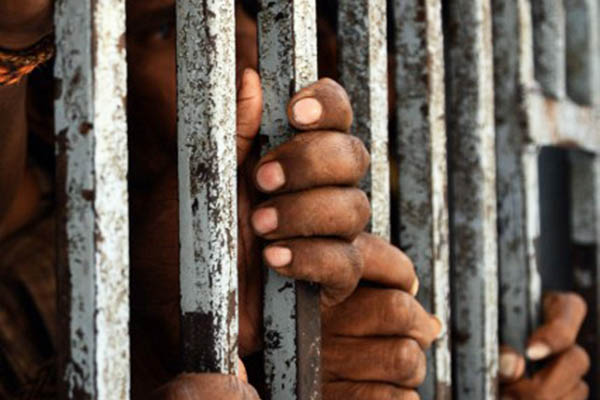
Asif Hassan—AFP
Authorities claim they have recovered Pakistani currency, jihadist books from the suspects.
Bangladesh police have arrested seven suspected Islamist militants including four Pakistani nationals, they said Saturday, accusing the suspects of planning to commit acts of violence in the Muslim-majority country.
The seven, who were arrested on Friday and later taken to court for interrogation, are suspected of belonging to the banned Islamist group Jamayetul Mujahideen Bangladesh (JMB), police said.
“In primary interrogation, they’ve admitted that they’re activating the operation of the banned JMB. They gathered to commit acts of violence,” a police statement said, adding authorities believed the group was conspiring against the government.
The arrests come as tensions run high in Bangladesh following a spate of targeted killings and fears of mounting Islamist violence in the conservative country of 160 million. Dhaka police spokesman Muntashirul Islam told AFP those arrested included four Pakistani nationals, the first time police have claimed Pakistanis are active in the banned group.
Police said they had seized Pakistani currency and jihadist books from those arrested, including one which spells out punishment for defaming Islam’s Prophet.
JMB militants have been blamed for attacks in recent weeks including slashing the throat of a Christian pastor and a series of murders of Sufi Muslims, who the militants consider as heretics. Bangladesh is also grappling with a series of murders claimed by the Islamic State group (I.S.) in recent weeks, including the fatal stabbing of a policeman on Wednesday.
I.S. has also said it was responsible for the murders of an Italian aid worker and a Japanese farmer, as well as a blast at the country’s main Shia shrine which left two people dead.
The government has rejected I.S.’s claims, saying it does not have a presence in the country.
A branch of Al Qaeda has also claimed responsibility for the murders of four atheist bloggers and machete attacks on publishers in the past year, calling the victims “atheists and blasphemers.” The government, however, has blamed those attacks on local militants, along with the main opposition party and its Islamist ally, for orchestrating violence to destabilize the country.
The homegrown JMB, whose leaders were executed in 2007 over a series of blasts, have been trying to regroup in recent years. The group was set up in late 1990s by Bangladeshi jihadists, some of whom had fought in the Afghan war against the Russians.
